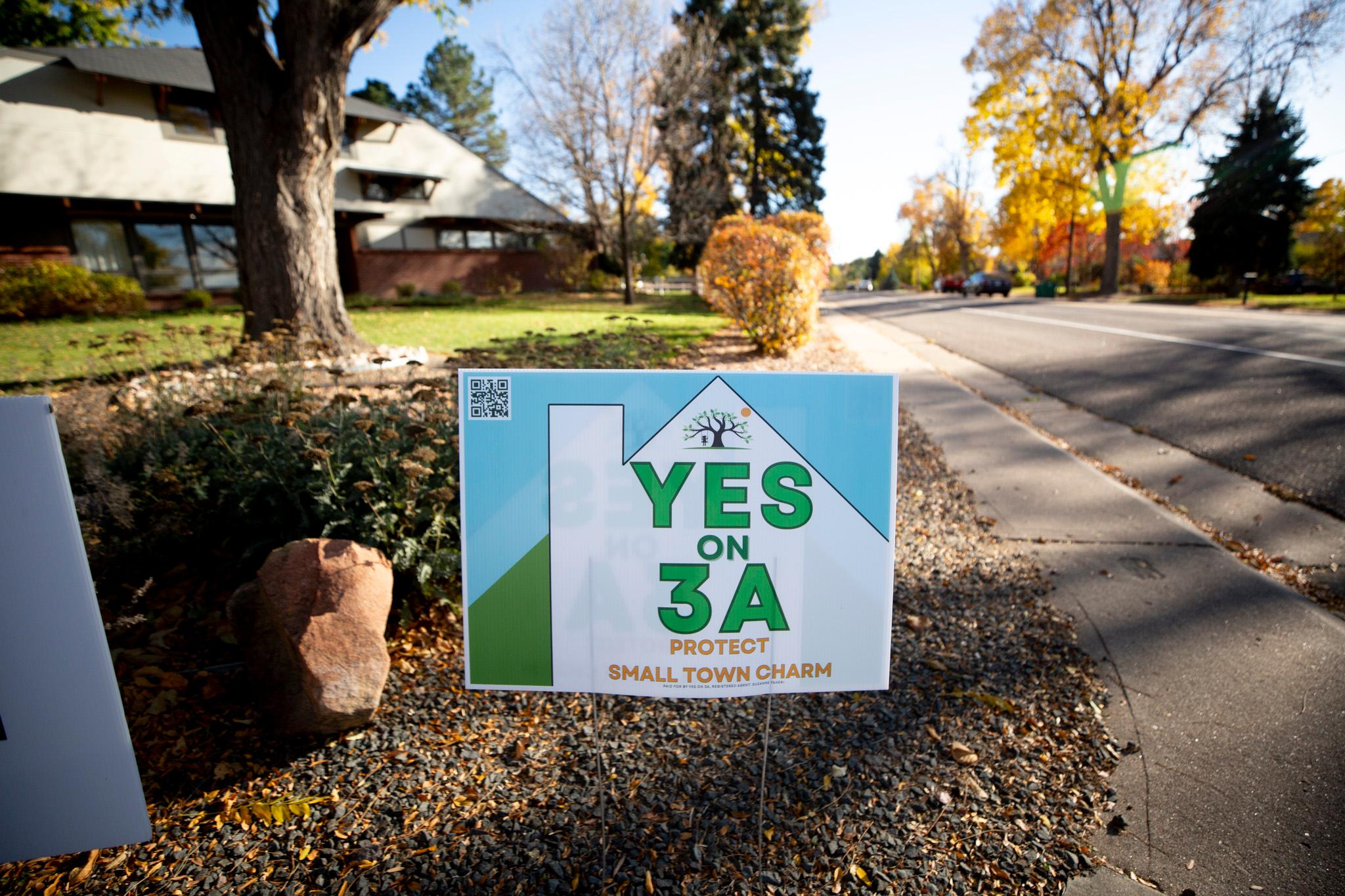A proposal to strictly limit zoning changes in Littleton is leading in early returns.
Ballot Question 3A had the support of about 55 percent of voters with just over 13,000 ballots counted as of 7 p.m.
The proposal would embed Littleton’s zoning code in its city charter. Doing so would make it impossible for the city council to make changes to development rules — for example, allowing more accessory dwelling units or increasing allowable housing densities.
“Littleton residents choose not to live in Denver for a reason,” the 3A campaign states on its website. “Pave over Littleton’s small-town charm and beauty and you start to get Denver. Replace yards for kids with more multiplexes and you start to get Denver.”
Littleton has a population of about 45,000 and sits south of Denver. It has prided itself as a small, family-friendly town with its own identity.
If 3A passes, changes to zoning rules would have to be approved by voters. Landowners could still ask the city council to change the zoning of their individual properties. But the city would be blocked from making the types of major zoning updates as other cities regularly do — unless voters agree.
Littleton City Council had recently made it easier to build ADUs across the city, but 3A would reverse that change, city officials said.
State funding at risk
The ballot measure could put Littleton at risk of losing state funding. Recent state laws require cities to broadly allow the construction of ADUs, as well as denser housing development near transit.
With its zoning code locked, Littleton could struggle to meet those requirements. (Some cities have challenged the new state laws in court.)
Who supported and opposed 3A
Supporters of 3A have organized under the name Rooted in Littleton. They say the ballot measure would protect Littleton from unwanted growth. It was spurred by a failed effort to allow duplexes and multiplexes in more parts of Littleton, with critics arguing the city did not properly engage residents as it considered the changes.
“It's a beautiful place. People love it here and we want it to be around for the next generation too,” said Joe Whitney, an organizer with Rooted in Littleton, in an earlier interview with Denverite. “Theoretically, [3A] is forever, just like an amendment on the U.S. Constitution is forever, unless people decide they don't want it and then they vote it down and do something else. The purpose is, ‘Let's have constructive dialogue.’”
Critics organized under the name Vibrant Littleton. They argued that 3A would prevent the city from responding to a housing shortage that has threatened its family-friendly reputation. Littleton home prices are among the highest in the metro, and the city has produced fewer new housing units than almost any other large municipality in the area, The Colorado Sun reported.
“We recognize it as a complex issue,” said opposition organizer Spencer Hanks in an earlier interview. “We recognize that there's many avenues which we could take, but codifying zoning within a city charter [is] extremely restrictive and time-stamped and really shuts down all conversation and most of our ability to even begin to tackle something like affordable housing.”
Turnout appears to be high. In 2021, the city counted only about 14,000 votes in total — a total that the city came close to reaching in the first round of results this year.
While Littleton voters may approve one dramatic change, they are on track to retain their mayor, Kyle Schlachter. He was leading challenger Patrick Driscoll with 57 percent of the vote.
Journalist Cassis Tingley contributed to this article.












